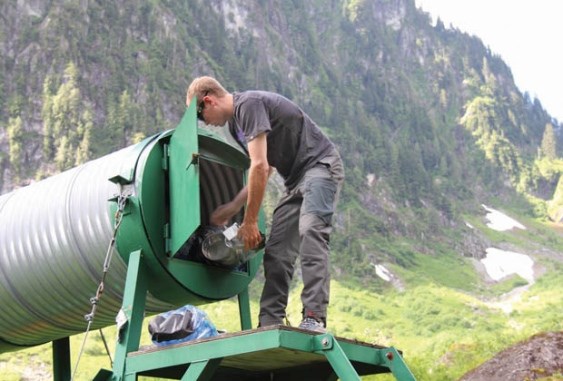Winter has fallen on the North Shore Mountains and North Shore Rescue volunteers are hoping to get some potentially lifesaving equipment online.
Volunteer members have designed a solar/battery-powered signal device that could send a distress call via VHF radio to alert NSR's base when pressed. Team leader Mike Danks is aiming to have them installed on their backcountry emergency caches, all of which are remote enough that anyone who stumbled on them would already be in trouble.
The team was initially looking to install a system that would alert them if one of the caches had been opened after four were raided and vandalized in June and July. Adapting the system to create an alert button for a lost hiker would only require small design changes. The total cost to fabricate and install the signals is $35,000 to $40,000, Danks said. The team is now looking to find a sponsor.
"It's not a cheap thing to do but it can make the difference between life and death for someone," he said. "Funding is the key thing. Without funding in place, we can't move forward with it. It's now just a concept. Now is the critical time because we're coming into the ski season. There is time to still make this happen."
Though North Vancouver RCMP followed up on some leads on the cache break-ins, the case has gone cold, Danks said.
The team is also gearing up and training for winter rescues. As ice and snow set in and the sun sets in the late afternoon, hikes can become treacherous, especially for those going out unprepared, according to search manager Doug Pope.
Volunteers airlifted an injured hiker out on Nov. 11 after he slipped on ice and broke his ankle.
While carrying out the rescue, volunteers came by other hikers woefully underdressed for the conditions, some in T-shirts, Pope said.
"Weather conditions are obviously a lot more variable this time of year in the mountains. What starts out as a nice, sunny day down in town can turn into a winter storm quite
quickly so being prepared with proper equipment, including layered clothing is important," he said.
Beyond that, hikers should have sturdy footwear with microspikes or crampons as well as hiking poles to prevent falls on the ice, the most common cause of injury in winter backcountry rescues.



